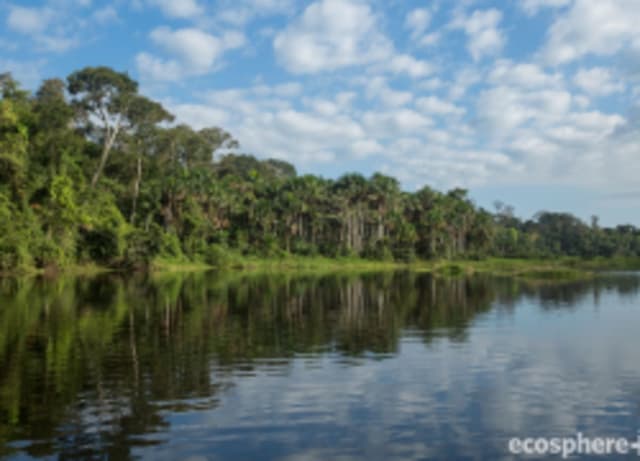The difficult transition of fossil fuel oil and gas companies to clean energy
The world’s largest producers of carbon dioxide are trying to get off dirty power by investing heavily in renewables like wind, solar and hydroelectricity – but they’re running into some big hurdles. That includes the fact that many states in the US have banned them from building new pipelines or other infrastructure needed for renewable energy projects, while others don’t want to see any more pollution pouring into the atmosphere. Meanwhile, natural disasters could also threaten these investments as we continue in the hottest decade ever recorded.
But it doesn’t all come down to money. The industry has been slow to embrace cleaner technology because of its long-standing ties with regulators who favour old school methods over new technologies. Plus, there’s another reason why oil and gas companies may be reluctant to make such large commitments to renewables: They fear losing control over future supply chains. And if you look at what happened during Hurricane Katrina, it seems unlikely this will change anytime soon.
“In order to do [renewables], you’ve got to build transmission lines,” says Chris Tomlinson, an economist at Global Policy & Economic Research (GPE) in Houston. “And I think most people believe those transmission lines are going to go through Texas.”
That means the state would become even more dependent upon the petroleum industry than it already is. While lawmakers in several states are pushing back against allowing oil and gas companies to play kingmaker between utilities and customers, Tomlinson argues that this approach won’t work without making changes first to the grid itself. In his view, the best solution lies somewhere in the middle; he believes oil and gas companies should help build out green grids instead of taking over completely.
“I’m not saying the oil guys shouldn’t invest in renewables,” says Tomlinson. “They should just focus less on owning the system themselves.”
One area where Tomlinson thinks oil and gas companies can help is helping develop better forecasting models so that utility operators know exactly how much electricity each company needs when. If major players like Exxon, Chevron and BP were able to offer up reliable projections about demand, then they could potentially sell extra capacity onto wholesale markets where prices fluctuate based on market forces. This type of coordination might allow them to take advantage of cheaper sources of energy while still offering reliable service to consumers.
Tomlinson isn’t alone in thinking that the oil and gas firms’ influence over electric systems makes sense given their size and resources. Last year, AWEPA, which represents independent oil and natural gas producers, published a policy paper outlining ways that the industry can support policies aimed at reducing greenhouse gases. One suggestion was increasing transparency around how much emissions different types of production actually produce. Another idea included creating incentives for producers to use greener forms of energy in general, rather than simply focusing on cutting methane leaks from drilling operations.
Yet AWEPA hasn’t endorsed specific proposals made elsewhere, including one put forth last month by the Center for Climate Integrity, a nonprofit group cofounded by former Vice President Al Gore. Its recommendations include giving the Department of Interior greater authority to regulate land leases held by oil and gas companies, banning fracking on public lands and requiring federal agencies to purchase only carbon offsets and green products.
These ideas aren’t necessarily opposed to the goals set out under Paris Agreement, according to Josh Eisenfeld, director of communications at the Center for Climate Integrity. He notes that the organization supports using existing regulations to encourage increased efficiency among businesses and governments alike. But he acknowledged that the group likely wouldn’t endorse calls for the government to require everyone buy green credits. Doing so would risk slowing progress towards meeting overall climate targets.
Eisenfeld said that the Trump administration has shown little appetite for prodding individual Americans to adopt more sustainable lifestyles. Instead, it wants to incentivize the private sector to make such choices voluntarily. However, Eisenfeld noted that the White House hasn’t yet issued a formal plan detailing how the U.S. will meet its target of peaking global warming pollutants by 2020. So far, it’s focused primarily on rolling back environmental protections enacted under Obama.
There’s no question that the oil and gas industry has plenty of room to improve its image in terms of sustainability. As part of its own internal investigation following Hurricane Harvey, Shell admitted that it fell short in properly managing risks posed by flaring of methane, a potent greenhouse gas 25 times worse than CO2. Other reports suggest the industry keeps billions in profits overseas due to tax dodging and lax reporting standards.
Meanwhile, oil giants continue to pour millions into lobbying efforts across America, Europe and Asia. These groups often push for policies that benefit their bottom line while doing very little to address underlying problems within their industries. For example, Exxon spent $3 million in 2016 opposing bills introduced by Democratic representatives Alexandria Ocasio-Cortez and Ro Khanna designed to limit Big Tech companies like Google and Facebook from collecting user data.
Still, Tomlinson acknowledges that oil and gas companies face steep challenges transitioning away from dirty fuel sources. Even though they hold trillions worth of untapped reserves left underground, executives worry that falling commodity prices could lead investors to pull funding from exploration programs and mothballed pipeline plans.
“Unless something happens to fundamentally reverse that trend, I’m afraid that’s probably our fate,” says Tomlinson.


